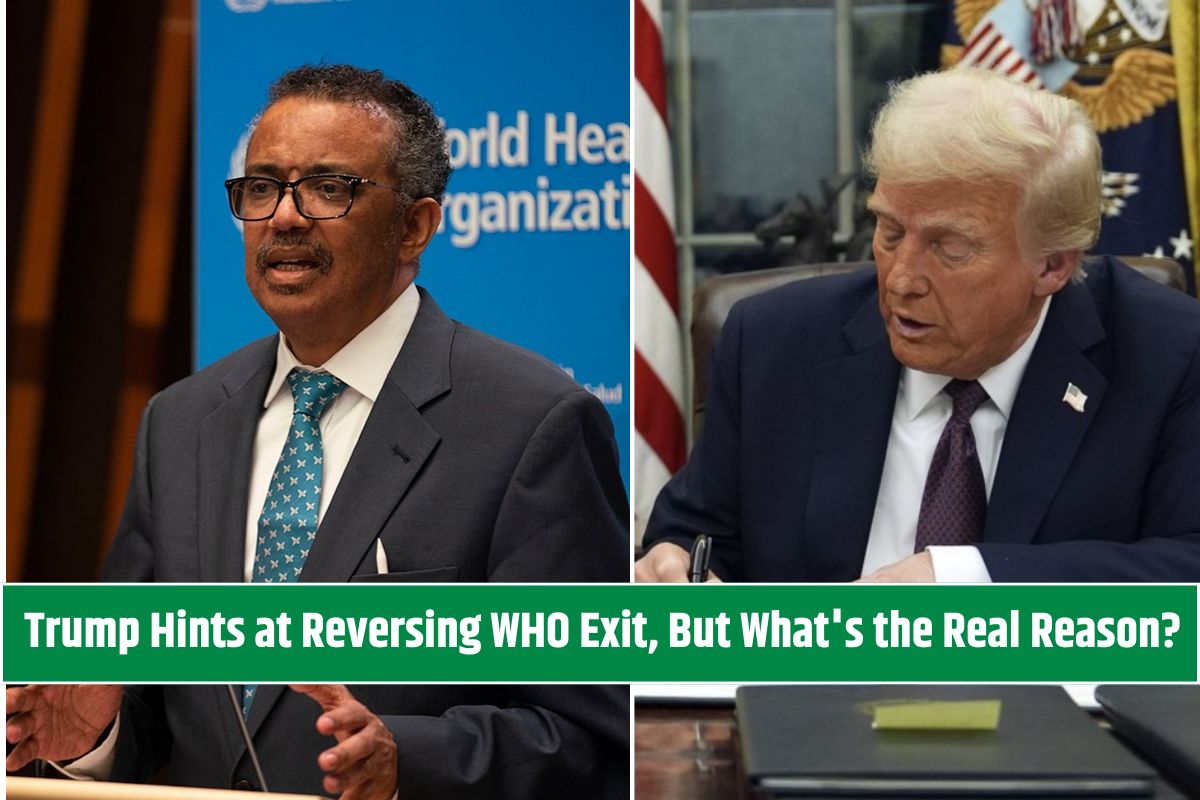In a surprising turn of events, former President Donald Trump has hinted at the possibility of the United States rejoining the World Health Organization (WHO), just days after initiating the withdrawal process. Speaking at the Circa Resort and Casino in Las Vegas, Trump shared, “Maybe we would consider doing it again, I don’t know, they have to clean it up a bit.”
While Trump’s initial executive order to withdraw from WHO during his presidency remains in effect, the move was halted when President Joe Biden reversed the decision early in his administration. However, Trump’s comments suggest that rejoining the WHO could still be on the table, provided reforms are made.
Why Did Trump Withdraw from WHO?
Trump’s executive order accused the WHO of:
- Failing to adopt essential reforms.
- Lacking independence from political influences within its member states.
- Mishandling global health crises, particularly the COVID-19 pandemic.
The order also directed:
- Halting all future U.S. funding to the WHO.
- Recalling federal personnel and contractors working with the organization.
- Redirecting efforts to credible, transparent global health partners.
As the largest contributor to WHO, the U.S. withdrawal significantly impacts the organization’s operations. In 2023, the U.S. provided 18% of WHO’s budget, funding initiatives like polio eradication, maternal and child health programs, and disease research.
Implications of U.S. Withdrawal
The decision to leave the WHO has drawn criticism from scientists and public health experts, who warn of dire consequences, including:
- Disruption of global health initiatives: The loss of U.S. funding could hinder programs addressing AIDS, malaria, and tuberculosis.
- Delays in vaccine development: The U.S. would lose access to WHO-coordinated initiatives like flu vaccine composition and genetic databases.
- Weakened collaboration: Agencies like the Centers for Disease Control and Prevention (CDC) that rely on WHO partnerships would face challenges.
Experts fear that withdrawing from the WHO could jeopardize progress in combating current diseases and leave the world more vulnerable to emerging health threats.
WHO’s Response
The WHO expressed regret over Trump’s decision, calling for renewed dialogue with the U.S. “For over seven decades, WHO and the USA have saved countless lives and protected Americans and all people from health threats. Together, we ended smallpox, and together we have brought polio to the brink of eradication,” the organization stated.
WHO spokesperson Tarik Jasarevic acknowledged the significant financial role the U.S. plays, contributing up to $815 million annually, but refrained from commenting on the potential effects of the U.S. withdrawal.
Trump’s willingness to reconsider rejoining the WHO hinges on the organization’s ability to implement reforms and address criticisms. In the meantime, the withdrawal continues to impact both U.S. and global health initiatives. The international community and public health leaders are watching closely to see if the U.S. will reengage with the WHO to preserve its legacy of global health leadership.
